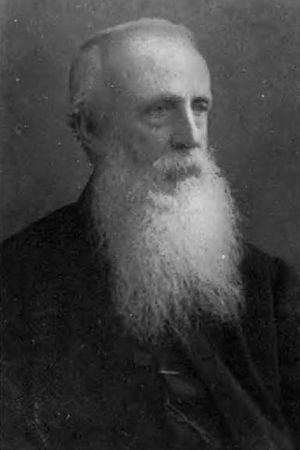Octavius Pickard-Cambridge facts for kids
Quick facts for kids
Octavius Pickard-Cambridge
|
|
|---|---|

The Rev. O. Pickard-Cambridge, around 1891
|
|
| Born | 3 November 1828 |
| Died | 9 March 1917 (aged 88) |
| Nationality | British |
| Education | University of Durham |
| Occupation | clergyman and zoologist |
| Spouse(s) | Rose Wallace |
Octavius Pickard-Cambridge (born November 3, 1828 – died March 9, 1917) was an English clergyman and a zoologist. He was especially famous for studying spiders, a field called arachnology. He discovered and named over 900 different types of spiders! He was also a Fellow of the Royal Society, a very important science group.
Contents
A Life of Discovery and Spiders
Octavius Pickard-Cambridge was born in a village called Bloxworth in Dorset, England. He was the fifth son in his family. His family changed their name to Pickard-Cambridge in 1848 after inheriting some property.
Early Life and Education
Octavius was taught at home by a poet named William Barnes. He also learned to play the violin. Later, he studied law in London before going to Durham University to study theology (which is the study of religion). He was very active at university and made many friends. He even helped run horse races and led the college singing group. He finished his studies in 1859. In 1868, he became the clergyman for Bloxworth, following in his father's footsteps.
His Love for Nature
From a young age, Octavius was very interested in nature. His first published writing about animals came out in 1853. While he also wrote about birds and lepidoptera (which are butterflies and moths), his main passion was spiders.
His interest in spiders grew in 1854. He went on a trip with an entomologist (an insect expert) named Frederick Bond. He also started reading the works of another spider expert, John Blackwall. Octavius and Blackwall became friends and worked together. Octavius even helped Blackwall publish his big book, British and Irish Spiders, between 1861 and 1864.
Travels and New Discoveries
In 1863-1864, Octavius traveled through Europe all the way to Egypt. On this trip, he collected birds and met his future wife. He also met other famous spider experts like Ludwig Koch in Germany. He spent several days looking at their amazing spider collections.
Octavius Pickard-Cambridge wrote many books and papers about spiders from 1859 until he passed away in 1917. His most important work was a large book about spiders from Central America, published between 1883 and 1902. Another well-known book was The Spiders of Dorset. He also wrote many articles for science journals.
He became a world expert on spiders. He described and named 932 new species! This included the Costa Rican redleg tarantula and the Sydney funnel-web spider, which is a very famous spider from Australia.
Recognition and Legacy
Because of his important work, Octavius was chosen to be a Fellow of the Royal Society in 1887. This is a huge honor for scientists in Britain. After he died, his amazing collection of spiders and his library of books were given to the University of Oxford. Today, they are kept at the Oxford University Museum of Natural History.
Family Life
Octavius Pickard-Cambridge married Rose Wallace in 1866. They had met in Paris and Venice while she was traveling. They had six sons. Two of his sons became famous scholars:
- William Adair Pickard-Cambridge (1879–1957) was a classicist (someone who studies ancient Greek and Roman culture) and a composer.
- Sir Arthur Wallace Pickard-Cambridge (1873–1952) was also a classicist and a leading expert on ancient Greek theater.
His nephew, Frederick Octavius Pickard-Cambridge, also became a well-known spider expert, just like his uncle!
Major Works
- "Arachnida", in Encyclopædia Britannica, 9th Edition, Volume II (Edinburgh, 1875)
- The Spiders of Dorset: From the 'Proceedings of the Dorset Natural History and Antiquarian Field Club.' (Sherbourne, 1879–82)
- Araneidea. Scientific Results of the Second Yarkand Mission. (Calcutta, 1885)
- Monograph of the British Phalangidea or Harvest-Men. (Dorchester, 1890)
 | Emma Amos |
 | Edward Mitchell Bannister |
 | Larry D. Alexander |
 | Ernie Barnes |

